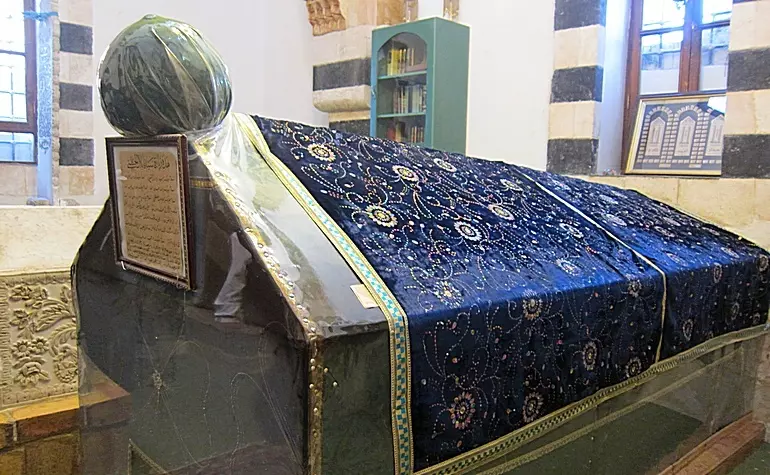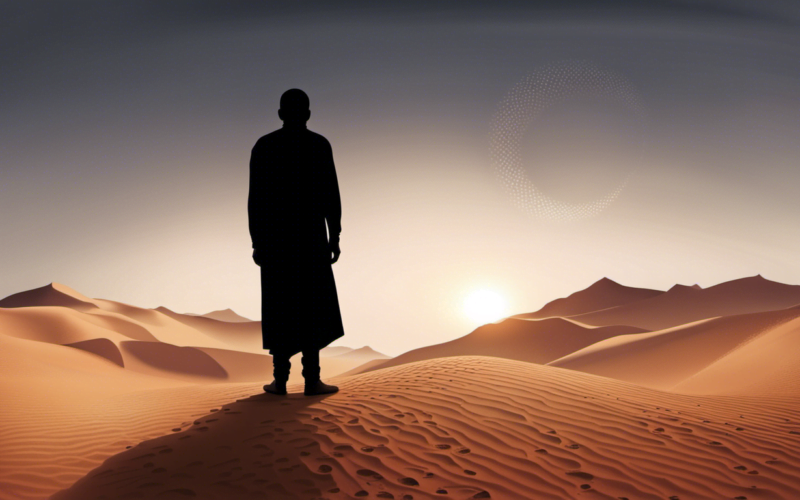The remarkable life of Bilal Ibn Rabah (R.A) shines as a beacon of unwavering devotion and remarkable courage in the history of Islam.
Table of Contents
A close companion of the Prophet Muhammad (S.A.W.W), Bilal’s journey from humble beginnings to becoming Islam’s first muezzin continues to inspire and resonate with Muslims worldwide.
Early Life Story of Bilal Ibn Rabah (R.A)
Bilal came from a mixture of cultures. His father, Rabah, was a slave from the Banu Jumah tribe in Arabia. His mother, Hamamah, was a princess from Abyssinia who became a slave after the Year of the Elephant. He inherited his unique features of dark skin and curly hair from his Abyssinian ancestors.
Bilal grew up in Mecca as the servant of a famous leader named Umayyah ibn Khalaf. He naturally disliked the worship of idols and the many gods that were common in the city. People trusted him with the keys of the holy Kaaba because of his honest and wise nature.
Bilal (R.A)’s Marriage and Family
Bilal crossed paths with Hind bint Awf, a pious woman from the Banu Khazraj tribe in Medina. United by their religion and a common past of enslavement, they formed a bond based on mutual help and loyalty. They had four children together-two sons named Abdullah and Ubaydullah, and two daughters named Ruqayyah and Hafsah.
Prophet Muhammad PBUH and Bilal (R.A)
Bilal became interested in Islam when he heard the Prophet Muhammad’s teachings about one God, fairness, and equal treatment.
He decided to follow Islam at an early age. His strong faith caused him to suffer greatly from his owner’s mistreatment. Umayyah’s constant torment made Bilal even more determined. He firmly believed in the power of one God and repeatedly declared “Ahad, Ahad” (One, One) to show his unwavering faith.
Freedom From Slavery
Bilal had a strong, determined attitude that attracted the kind attention of Abu Bakr, who was a close friend of the Prophet Muhammad and a successful businessman. Touched with compassion, Abu Bakr helped Bilal become free, creating a strong bond of brotherhood in the Islamic community. This pivotal moment changed Bilal’s life and allowed him to focus fully on his faith.
Becoming the First Muezzin of Islam
Bilal had a beautiful and powerful voice that people associated with the call to prayer. Prophet Muhammad (peace be upon him) chose Bilal to be the first person to call Muslims to prayer. Bilal, with great humility, sang the call to prayer from high places and his voice could be heard throughout the streets of Medina. The beautiful sound of the Adhan called the faithful to prayer, bringing them together and deepening their faith.
What Happened to Bilal after the Prophet Passed Away?
Bilal’s contributions went beyond the call to prayer. He stood firmly on the battlefield with Prophet Muhammad (S.A.W.W.), showing great courage and unwavering loyalty. His influence went beyond religious boundaries and he played a very important role in spreading Islam to new and unknown places. Bilal’s legacy continues to inspire Muslims of all ages.
How and When Did Bilal RA Die?
Bilal’s legacy continues to inspire Muslims of aIn 640 A.D., Bilal died in Damascus, where he lived with his family. Although he was ill and had a high body temperature, his strong faith never wavered. His last words showed his love for the Prophet Muhammad (S. AW), where he expressed his happiness to meet the Prophet and his friends in the afterlife.
Where is Bilal RA Buried?

He is buried in the cemetery of Bab al-Saghir in Damascus. This grave has a white dome with a green crescent on top. It is very striking. The words on this dome say, “This marks the grave of Bilal ibn Rabah, the caller to prayer for the Messenger of Allah.
Last Call to Prayer (Adhan)
In 634 A.D., Bilal ibn Rabah gave his last call to prayer, called the Adhan. This sad moment occurred two years after the death of the Prophet Muhammad (S.A.W.) During a great event, Bilal returned to the city of Medina for the first time since he had left. Umar ibn al-Khattab (R. A) went on the journey with him. Umar later became the second caliph of Islam after Abu Bakr (R. A).
During his visit, Umar saw Bilal in Medina and kindly asked him to call the people to pray as he had done in the Prophet’s lifetime. Bilal was unsure at first, but then he answered Umar’s request by saying, “O leader of the faithful, how can I perform this task in the absence of the one who originally instructed me…”
Who was Bilal Ibn Rabah’s Wife?
Who was the Sister of Bilal Ibn Rabah?
Was Hazrat Bilal RA an African?
Who was the Owner of Bilal RA?
Is Bilal Mentioned in the Quran?




 WhatsApp Channel
WhatsApp Channel
 Instagram
Instagram
 Facebook
Facebook
 X (Twitter)
X (Twitter)